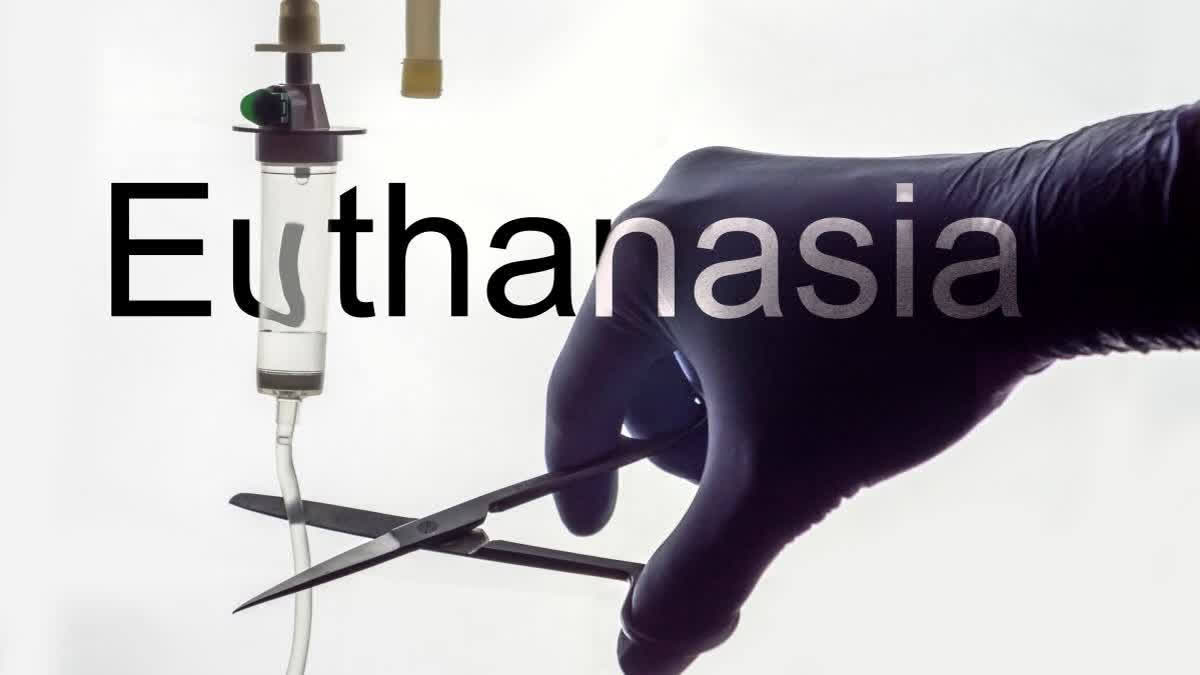New Delhi: To minimise patient suffering and reduce financial burden, the Director General of Health Service (DGHS) has framed draft guidelines on the withdrawal of life support in terminally ill patients.
“The framing of clear guidelines for withdrawing life support in terminally ill patients would provide ethical clarity for medical professionals, alleviate financial and emotional strain on families and ensure respect for patient autonomy and dignity. These would also help prevent unnecessary suffering for patients with no hope of recovery, improve the allocation of critical healthcare resources, and offer legal protection to healthcare providers, fostering a more compassionate and efficient approach to end-of-life care,” said Dr Tamorish Kole, Chair of the Clinical Practice Committee (CPC) of the International Federation for Emergency Medicine (IFEM), to ETV Bharat on Saturday.
Many patients in the ICU are terminally ill, and not expected to benefit from life-sustaining treatments (LST) that include mechanical ventilation, vasopressors, dialysis, surgical procedures, transfusions, parenteral nutrition or Extracorporeal Membrane Oxygenation (ECMO).
“In such circumstances, LSTs are non-beneficial and increase avoidable burdens and suffering to patients and therefore, are considered excessive and inappropriate. Additionally, they increase emotional stress and economic hardship to the family and moral distress to professional caregivers,” the DGHS said.
Terminal illness
An irreversible or incurable condition from which death is inevitable in the foreseeable future. Severe devastating traumatic brain injury, which shows no recovery after 72 hours or more is also included. Withdrawal of LST in such patients is regarded as a standard of ICU care worldwide and upheld by several jurisdictions. Such decisions have medical, ethical and legal considerations, the DGHS said and invited comments from the general public over the draft guidelines.
DGHS uploaded draft guidelines on the Ministry of Health portal
“The initiative to develop guidelines for the withdrawal of life support in terminally ill patients is intended to uphold patient autonomy and dignity while ensuring compassionate end-of-life care that prioritises quality over merely prolonging life. The draft is now open for public consultation, inviting citizens to reflect and provide input from a societal perspective,” said Dr Kole.
He said that opportunities for implementing this system include evolving perspectives on patient rights, the establishment of a robust legal framework that supports ethical decision-making and public engagement through consultations that foster understanding.
“Additionally, the influence of global healthcare practices may encourage the acceptance of humane, patient-centred approaches,” said Dr Kole.
Legal Principles Outlined by Supreme Court
LST may be withheld or withdrawn lawfully under certain conditions from persons who no longer retain decision-making capacity, based on the fundamental right to autonomy, privacy and dignity. Advance Medical Directives (AMD) that meets specified requirements is a legally valid document. For a patient without capacity, Foregoing Life Support (FLST) proposals should have consensus among a group of at least three physicians, who form the Primary Medical Board (PMB). The PMB must explain the illness, the medical treatment available, alternative forms of treatment, and the consequences of remaining treated and untreated to fully inform the surrogate. A Secondary Medical Board (SMB) of three physicians with one appointed by the Chief Medical Officer (CMO) of the district must validate the decision by the PMB.
Constitution of Medical Boards: PMB & SMB
The Primary Medical Board is constituted by the hospital/institution for each case, consisting of the primary physician and at least two subject experts with five years of experience. Members of the PMB may be from the multidisciplinary treating team. The Secondary Medical Board (SMB) constituted by the hospital/institution, consists of one Registered Medical Practitioner (RMP) nominated by the CMO and at least two subject experts with five years of experience. The SMB will directed by the Supreme Court to tell their opinion within 48 hours of the referral of the patient.
Read more: Three-Year-Old Kanchan's Organs Give New Lease Of Life To Needy Patients In Chandigarh



